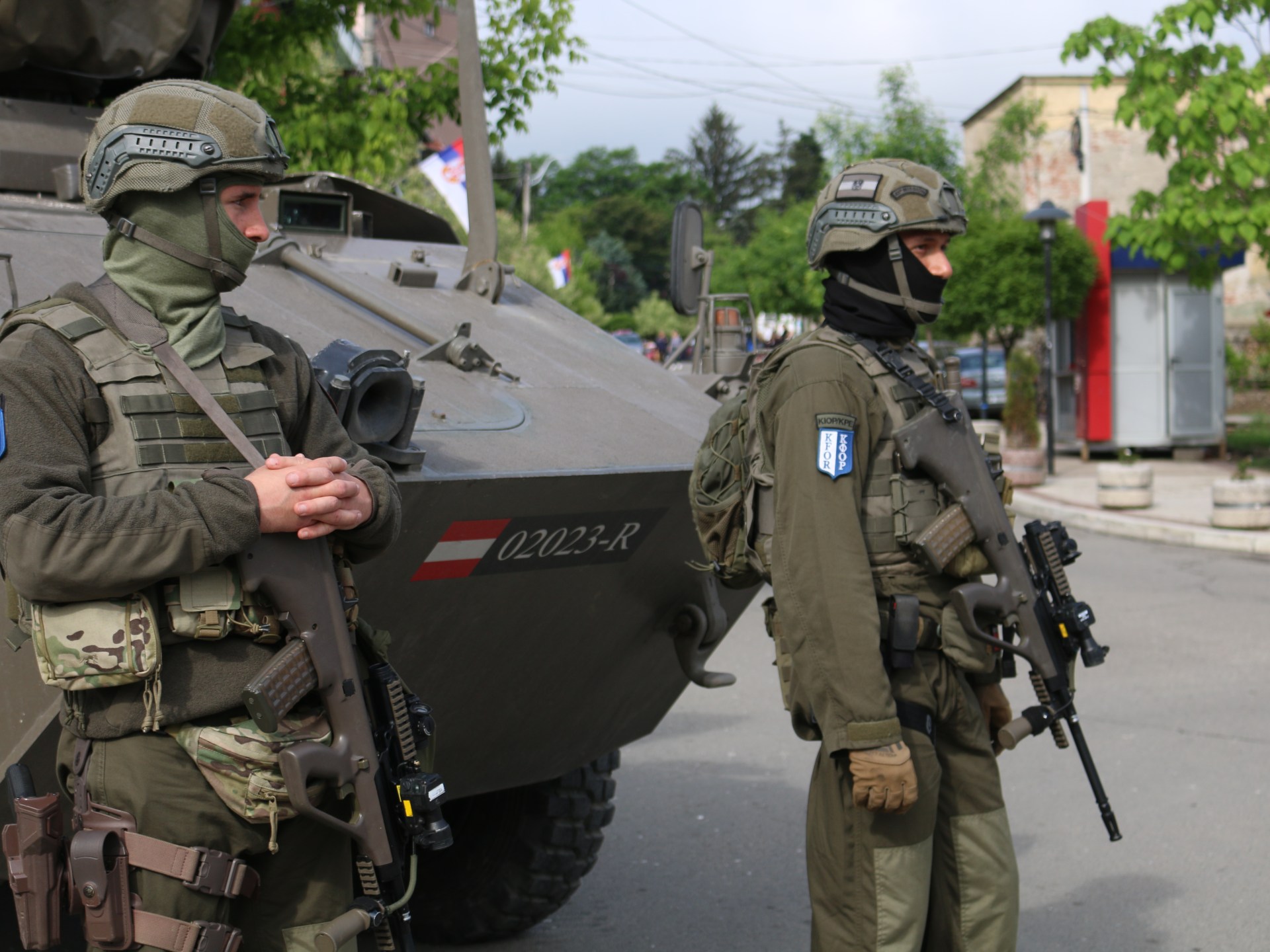The commander of the NATO peacekeeping force in Kosovo, General Angelo Restoschia, said that the situation in Kosovo is very dangerous and that any incident could lead to an escalation, while Serbs continued their demonstrations against the assumption of office by Albanian mayors in the north of the country.
Restuccia added in an interview with Al Jazeera that a solution must be found that returns the parties to negotiations.
Asked about Russia's position on what was happening in Kosovo, the NATO military chief said Moscow knew nothing of what was happening on the ground.
Had it not been for the intervention of NATO peacekeeping forces, the situation would have worsened and spiraled out of control, he said, stressing that these forces played a major role in keeping the situation under control, revealing that the NATO secretary-general had agreed to bring additional troops to Kosovo.
The comments come as citizens of Albanian nationality in northern Kosovo demonstrated against what they described as Serbian gang violence against police and peacekeepers.
On the other hand, Serb demonstrators continued their movement to oppose the assumption of office by Albanian mayors in northern Kosovo, which has recently seen confrontations with the NATO peacekeeping force, and dozens of Serbs gathered again Thursday near the town hall, but their number was lower than in previous days.
Since 26 May, Kosovo Serbs in the north have been staging protests to prevent newly elected Albanian mayors from entering municipal buildings to begin their duties.
The mayors took office after winning local elections in May in four municipalities - mostly Serb - who largely boycotted the election, with only 4,1500 voters out of 45,<> registered voters taking part.
International pressure
Under pressure from France and Germany, Kosovo President Viosa Osmani met Serbian President Aleksandar Vucic briefly in the presence of French President Emmanuel Macron, German Chancellor Olaf Scholz and EU foreign policy chief Josep Borrell on the sidelines of a summit in Moldova.
Osmani called on Serbia to stop its destabilizing activities and stop supporting "criminal gangs", while Vucic conditioned the withdrawal of mayors in northern Kosovo on easing tensions.
Kosovo President Fiosa Osmani with French President Emmanuel Macron (left) and German Chancellor Olaf Scholz (Anatolia)
Meanwhile, US Secretary of State Antony Blinken urged the leaders of Serbia and Kosovo to reduce tensions, warning that they were threatening hopes of joining Europe.
Blinken told reporters during NATO talks in Oslo on Thursday: "We call on the governments of Kosovo and Serbia to take immediate action to de-escalate tensions."
"We support the Euro-Atlantic integration process for Kosovo and Serbia, but the current escalation is hindering more than helping efforts to move in that direction," he said.
The United States earlier criticized Kosovo after it had long supported it, following Prime Minister Albin Kurti's decision to appoint Albanian mayors after Serb voters boycotted local elections in predominantly northern areas.
"We have made clear our concerns about some of the steps that have been taken, and we have said that directly to the leaders involved, including Prime Minister Kurti," Blinken said.
Blinken warned of "unilateral actions" by any party after Serbia declared a state of alert in its military and said the European future would meet "the aspirations of people in both countries." "If any country takes steps that would rule out this possibility, it will not be in the interest of their people."
The NATO-led international peacekeeping force in Kosovo has stepped up deployments in the four municipalities where there is unrest between the Serb minority and the government of Pristina (in the north of the country), with the European Union's foreign policy chief warning of the seriousness of the situation.

